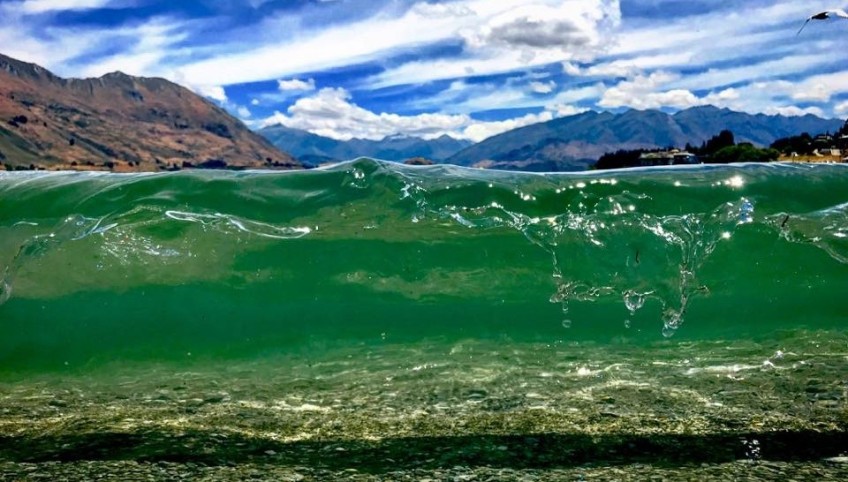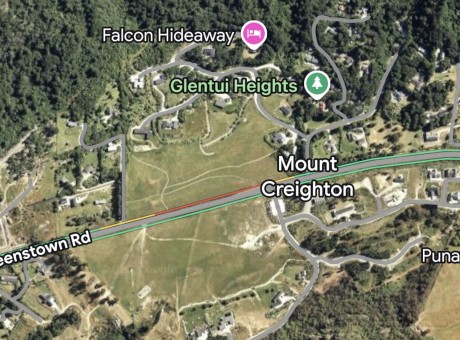Mammoth ORC policy shake up will impact urbanites, not just farmers

With just ten days left to have a say, only 120 submissions have been received on the Otago Regional Council’s hefty land and water plan.
The new regional policy statement is one of the council’s biggest policy shake-ups in years and staffers and councillors have been on the road in recent weeks for a string of public drop-in sessions cluing people up on what it may mean for them.
It is not a straightforward task, with hundreds of pages of draft documents outlining proposed changes to rules and regulations up for discussion.
The last drop-in session of the regional road trip is happening today, at the memorial hall in Ophir.
It is a stone’s throw from the Manuherikia, a river whose future lies at the heart of some of the unresolved and gnarly issues the fresh policy is seeking to deal to.
Dunstan councillor Alexa Forbes says it has not been easy getting people to engage with such a “huge, huge” project.
Sessions held in Cromwell and Wānaka attracted at most 30 people at each; an online event for Queenstown had 20 attendees.
ORC policy and science head Anita Dawe tells Crux the team is hearing a range of feedback across all the meetings in Otago.
"Themes include that there are concerns about increasing consent and compliance costs, and also concerns about efficiencies and ensuring the plan does not duplicate existing regulations. Some feedback has been around resilience of the sector to respond to change given the current economic environment."
However it appears some sectors have more readily engaged with the policy development than others.
'Well this is unworkable'
Ms Forbes says she has seen plenty of interaction with the proposed plan from farmers and rural folk as they have a feel for the practical implications of some of the suggested changes.
“Rural people are working with some of this stuff every day…They are looking at rules and they are going, ‘Well this is unworkable’.”
She gives the example of suggested changes to setback rules.
“It makes a really big difference to them when you say their setback may need to be widened. They may need to refence everything to do that.”
She says hearing this sort of coalface feedback is the point of the drop-in sessions, and it is up to councillors to listen, take on the feedback, and make decisions for everyone – but that is not an easy task.
“It’s really worrying as a councillor when someone says something is unworkable. But then you have to start thinking about, ‘Well, is it unworkable because you don’t want to change the way you do things, is it unworkable under business-as-usual, or is it actually unworkable with any farming at all and is it not going to do what we want it to do, which is improve our environment?’.”
Ms Forbes says the new plan will also turn the spotlight on urban dwellers, although she thinks it has been harder for them to engage with it.
“I guess it’s a bit more abstract for urban people, but it will have an impact on their lives.”
It is hard to draw her, or others at the council, on any one issue that could motivate people to get involved with the process.
“When you’ve got something as complex as a big land and water plan that is guiding, for a very long period of time, our fresh water management, it is very hard to pull that down into a single-issue debate, because it’s not there.”
She says the plan deals with wastewater, land-use, landfills, and earthworks, among other things.
“Developers, people building houses – those people are actually all impacted. They have to think about how what they’re doing may impact water. A couple of hay bales to catch your silt on an exposed building site just ain’t going to cut it.”
In a written statement provided to Crux ORC chair Gretchen Robertson agrees urban residents and ratepayers need to be across the changes proposed in the plan.
“Whether you are a community built on food production, an industry processing goods and discharging wastewater, a recreational flyfisher, a grandparent teaching mokopuna to harvest kai, or you think your urban stream could be enhanced.
“Striking the right balance between how we use water to sustain our needs, and ensuring our waterways' ongoing health, which we must prioritise, is the task in front of us right now.”
Change in government, change in plan?
Ms Robertson says the plan will provide a blueprint for managing Otago's waterways and activities around them for years to come, and the region is not alone in undertaking this policy work.
It is is a national directive that now applies to all waterways in New Zealand. The Government’s 2020 National Policy Statement on Freshwater gives effect to new protection measures that the regional authority must see through.
The ORC's Ms Dawe says some people have been asking about the potential implications of a change in national government on the well-underway policy work.
"At this point in time we, like the general public, are waiting for the new Government to be formed to understand any implications. Broadly speaking, however, our State of the Environment monitoring has demonstrated that we have water quality trends that require attention, and we also have known water quantity challenges. Those are the issues the plan is responding to."
Ms Forbes' suspicion is that momentum for change in how New Zealanders approach freshwater management is picking up speed and is unlikely to reverse.
"Put it this way, if I was them, I would go, 'Thank goodness someone else has brought this in and we don't have to'."
She says there has been a huge amount of work to get the draft plan to where it is, and that work will not stop when it finally gets across the line either.
"Once this plan is in place there will the regulation of it - making sure people are doing stuff - but all the information and the science and evidence that has been gathered will feed into catchment management and all other sorts of management around the area.
"A really positive thing for people to think about is this provides us with a real baseline for how we set environmental outcomes for each area and then we can get working on how we achieve that."
The deadline for notification of the region's proposed plan is June 30 next year.
Feedback on it remains open at https://www.orc.govt.nz/plans-policies-reports/land-and-water-regional-plan/give-your-feedback-on-the-draft-land-and-water-regional-plan until November 6.
Read more:
Local gold diggers dig in against ORC water rules

























